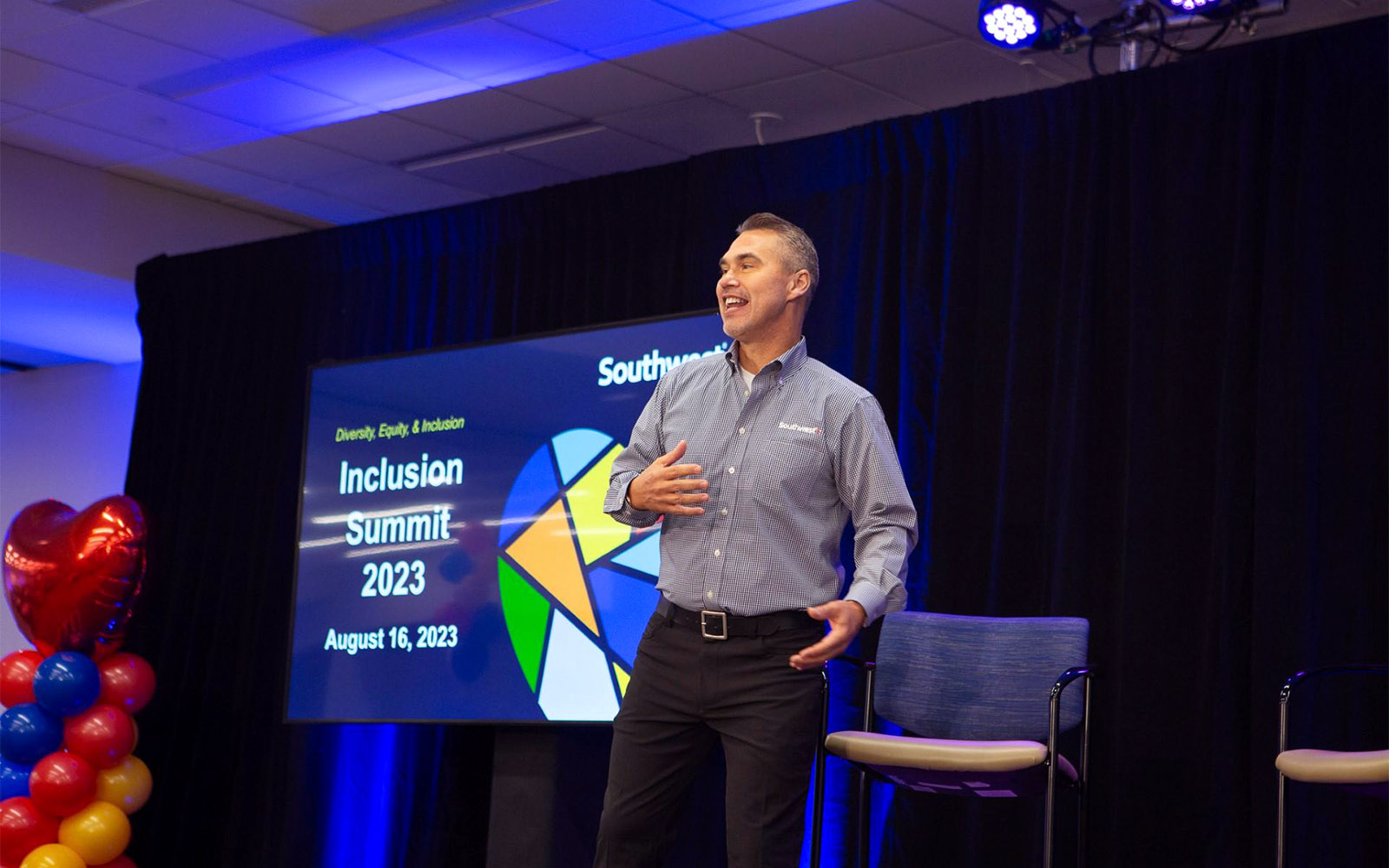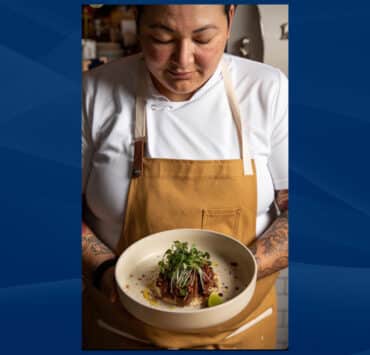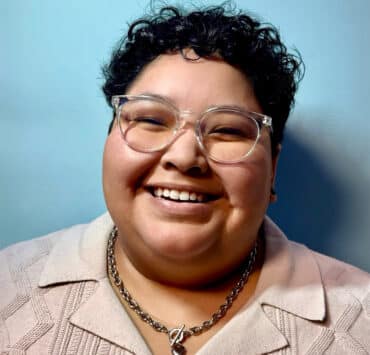|
Getting your Trinity Audio player ready...
|
“You are now free to move about the country.”
Many frequent fliers remember hearing that line in radio and television advertisements. Tweak the former Southwest Airlines slogan just slightly, and it becomes a perfect fit for Juan Suarez. His version would be: “You are now free to move about the company.”
Suarez is the airline’s vice president of diversity, equity, and inclusion (DEI). He joined the company nearly twenty-five years ago and has consistently embraced fresh opportunities since. On average, Suarez takes on a new role every four years.
After graduating from Cornell Law School with his Juris Doctor degree in 1993, Suarez entered the Dallas area market. There, he worked his way into big firm leadership while counseling clients on employment and labor matters. He was perusing a local newspaper when an ad caught his eye—a locally operated airline was looking for a labor and employment attorney. Suarez landed the job.
The 2000s were an exciting and important era for Southwest Airlines. The growing company had ordered ninety-four aircraft to complement its fleet. By 2003, Suarez was a senior attorney at Southwest, and the company was flying 65 million passengers annually. The next year, its fleet of jets surpassed four hundred.

Many positive aspects of the company intrigued Suarez, but it was the internal company culture that made the most impact on him. While the attorney was used to wearing a suit and tie in a professional environment, he found Southwest to be a more laid-back workplace where people displayed pictures of their families and pets. “I could tell right away that this is a great company that cares about its people,” he says. “We’ve always been a people-first company, and we practice what we preach.”
Despite the welcome he felt, Suarez couldn’t ignore the fact that he was the first Hispanic person to join the airline’s small legal department. In 2014, he completed an internal leadership development course. When its leaders asked Suarez about his career ambitions, he said that he would love to help the company explore and expand opportunities within DEI.
Southwest was already starting to increase its activity in the DEI space. So, six years later, Suarez was given the opportunity to formalize and grow an official DEI department. “Tenacity and patience are very important when you want something you believe in,” the VP of DEI says.
The Oklahoma native has always been concerned about issues surrounding inclusion, and now he has the chance to make an impact at scale. Southwest’s seventy-five thousand employees help the company operate around four thousand flights every day. “We can make a big difference. But to do so, DEI has to be intentional,” Suarez asserts.
The country’s demographics are changing, and strong diversity initiatives will ensure Southwest represents the communities in the 121 domestic and ten foreign destinations it serves. Additionally, Suarez knows that his work will attract top talent. By 2030, nearly 80 percent of candidates will come from underrepresented groups. And Southwest wants those candidates to see the airline company as an employer of choice.
Southwest set the following goals in 2020:
Double the percentage of racial diversity and increase gender diversity in the Senior Management Committee by 2025.
Increase diverse representation on the Southwest Airlines Board of Directors by 2025.
Evolve hiring and development practices to support the company’s overarching DEI business strategy, including posting all new, open leadership positions (from supervisor to vice president) and requiring diverse candidate slates for each role.
Measure progress in increasing senior leadership diversity.
Engage a breadth of community partners to leverage relationships in sourcing diverse talent for candidate pipelines.
When asked to describe his role, Suarez’s response is simple: “I don’t own DEI at Southwest,” he says. “But I am the one who gets to champion this issue across the organization.”
Serving as a champion and advocate—not a boss or dictator—encourages employee participation and brings forth the best company outcomes. Suarez says he receives and welcomes regular emails from employees and customers who have ideas about steps they would like to see Southwest take to enhance its DEI practices.
“Everything we do must have a strategy that feeds back into our business objectives, and DEI is no exception,” Suarez clarifies. His DEI strategy has four focus areas: culture and values, communications and reporting, talent, and brand representation.
As such, he’s helped with a new employee resource group (ERG) program that aligns DEI with Southwest’s people-first culture. There’s an annual report which informs all stakeholders about company DEI programs and metrics. Plus, Suarez finds that DEI initiatives attract the best talent, and these measures taken together appeal to raters, rankers, and consumers.
After taking on his new role, Suarez was part of a team that launched Southwest’s first inclusion counsel. The select group of thirty-six volunteers from across the organization will provide input and ideas as Southwest continues to optimize its DEI efforts.
But elevating DEI at Southwest is a multiyear project. “Infusing DEI into everything a company does is not a goal one can achieve quickly,” Suarez says. “It’s going to mean maximizing relationships and using all of our resources.”
A strong community outreach program will help. Southwest can tap into the network of four hundred organizations it partners with to generate positive outcomes in diverse communities. Those partners include the United Negro College Fund, the Hispanic Heritage Foundation, National LGBT Chamber of Commerce, Disability:IN, and the Honor Flight Network.
In the end, Southwest’s route map shows hundreds of arcs that connect one city to another with major airports serving as important hubs. It’s a good visual metaphor for DEI inside the company, too. Each employee, like each jet, has an important job to do. For the best results, Suarez says they all need to know their purpose, understand their role, and stay connected.
Ryan Law Partners LLP last worked with Juan before he was promoted to Southwest Airline’s vice president for diversity, equity, and inclusion (DEI). We saw why he’d be so good at his new job. Juan was principled and ambitious. Most of all, he was focused on finding the best outcome for Southwest. That’s a critical trait for navigating the complexities of championing DEI in today’s polarizing environment. It also reinforces the corporate culture that what’s best for Southwest is what’s best for its employees and customers—the philosophy that took Southwest from an idea on a napkin to a Fortune 500 powerhouse.

